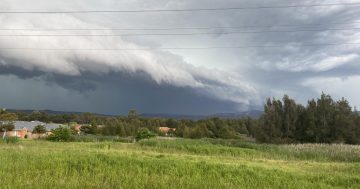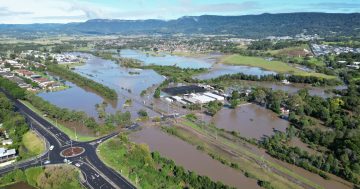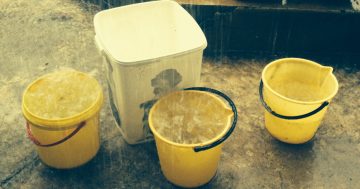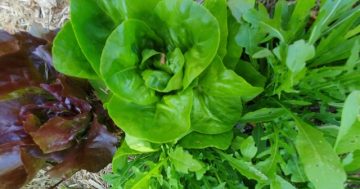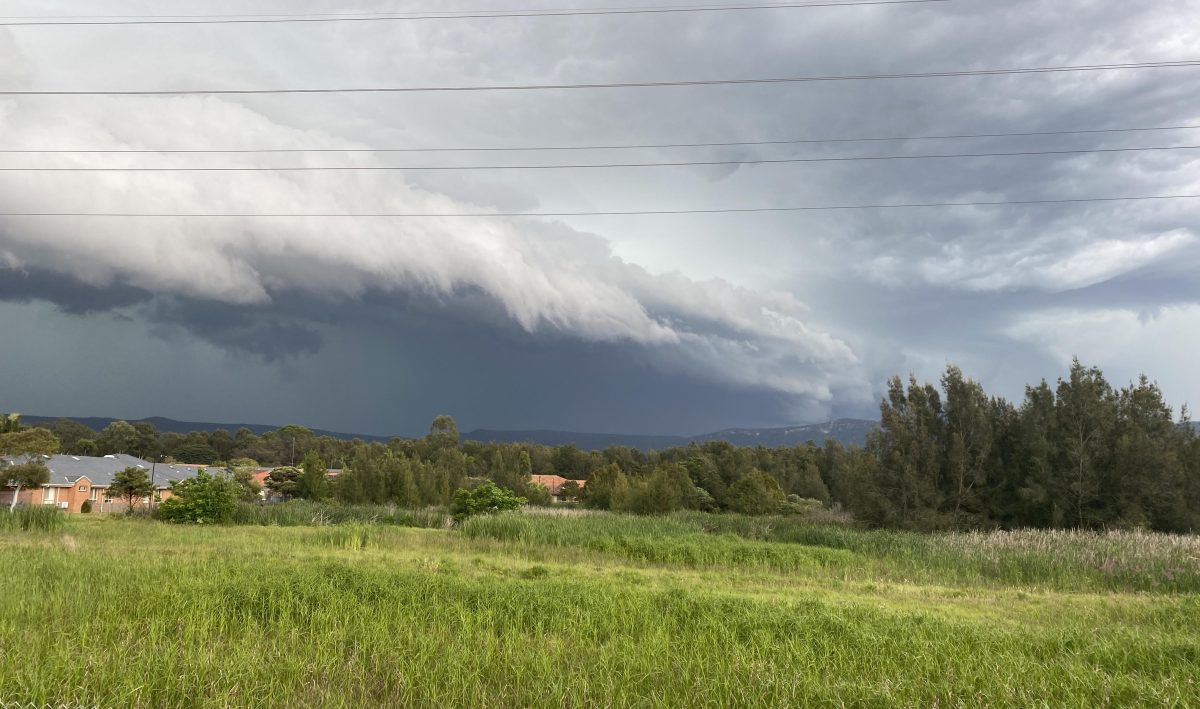
This summer the Illawarra has had it all, from thunderstorms to persistent heat and humidity. Photo: Jen White.
The chaotic and unpredictable weather we’ve experienced this summer may be a taste of what’s to come if climate change isn’t urgently addressed, the Climate Council says.
In spring NSW recorded some of the hottest and driest months on record after an El Nino weather event was announced, before months of intense rainfall over the summer holidays.
Unusually, the wet weather didn’t bring cooler temperatures with it, and December temperatures across the state were well above average.
The heat and rain resulted in weeks of high humidity – Sydney hit its highest dew point on record.
The muggy weather has more serious consequences than making us toss and turn at night.
Colin La Flamme is a bush regeneration worker in the Illawarra, and he said this summer he had seen more people in his team go down with heat-related illnesses than ever before.
“I’ve been working outdoors for 12 years, and while there have been some hot days in that time, usually we can manage it by working the shade,” he said.
“That just doesn’t work with the humidity. When you sweat you don’t cool down, you’re saturated by 8 am and people are going home with intense headaches, nausea and vomiting and cramping.
“I’m a subcontractor and my concern is if this trend continues, the risk of working in the heat increases and I don’t get paid if it’s too hot to work so my pay packet decreases.
“At the moment there’s no siesta style of work in Australia, so you can’t work early in the morning and late in the evening when it’s cool; work isn’t organised culturally that way here, so there’s larger risks and less money.”
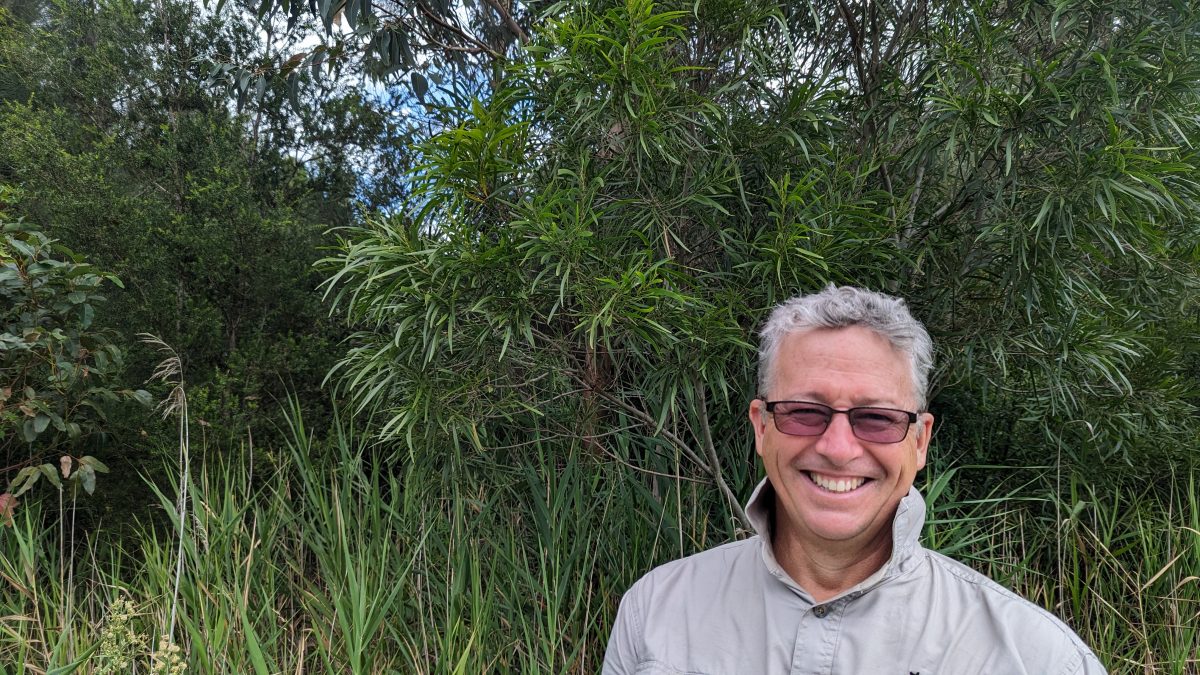
Illawarra bush regenerator Colin La Flamme says the combination of punishing heat and humidity has caused a spike in heat-related illness among his team. Photo: Colin La Flamme.
Colin said less reliable weather predictions had also made planting difficult, and in humid conditions weeds were thriving, while native plants were having a harder time of it.
The Climate Council, an independent, non-profit climate change communications organisation, released a report on 8 February that says these changes are consistent with scientists’ predictions for a warming planet.
Dr Simon Bradshaw, Director of Research at the Climate Council said stifling humidity, intense storms, soaring temperatures and other extremes were all key signs of a fast-warming planet.
“We know what we need to do to better protect Australian communities,” he said.
“It starts with cutting Australia’s climate pollution. We must urgently reform our national environment law so that we stop adding fuel to the fire by approving new coal and gas projects, and we must lock in the proposed fuel efficiency standard as soon as possible.
“At the same time, we must work much harder to prepare communities for the climate impacts of today and tomorrow.”
The report, Climate whiplash: wild swings between weather extremes warns that the weather of the past may no longer be a reliable guide for the future.
The report says rising ocean temperatures, changes in how our climate drivers, like El Nino, behave and interact, intense downpours, high humidity, persistent high temperatures and the early appearance of destructive Cyclone Jasper are all signs that climate change is here.
Colin said we must act before more damage was done to our environment, and to the systems we depend on to support us.
“Coming into an El Nino year felt quite distressing for me after the last one had such extensive bushfires,” he said.
“We didn’t burn in the Illawarra, we were very fortunate, but I think anyone who lives here would be extremely distressed to see the escarpment go up in flames.
“Instead we’ve got fungal diseases threatening unique plants in our pockets of rare subtropical forests, which is likely related to the increased humidity.
“Plants like the ipomea species are really growing vigorously this season, plus plants that would normally die back in summer, like cape ivy, grow throughout the year now.
“For people who have sought to conserve things and take care of our natural environment knowing we can lose so much so quickly makes us want to get off the fossil fuels and put the accelerator on the stuff that matters most.
“I’m not a farmer but we rely on weather for timing when to put plants in the ground, and they do too. It would be tragic if we lose the ability to use timing to our advantage for growing not just plants but food.
“Climate change affects far more fundamental things that most people take for granted.”









